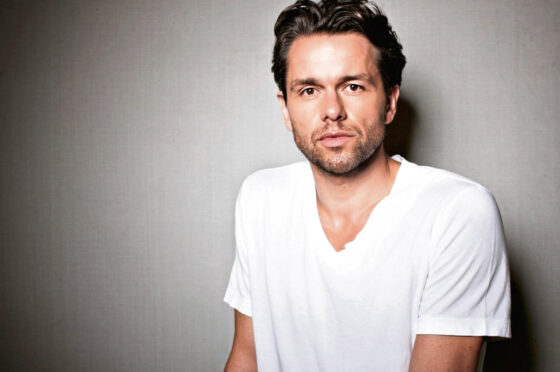
The Bridgerton star talks South Pacific, war, and performing for the late Queen.
What can you tell us about the revival of South Pacific, in which you star as Emile de Becque?
There were some elements of the story that don’t sit well with a modern audience, especially the way the people from the Pacific are characterised, and the director has tried to make them fully-rounded.
The piece is anti-racist and was awarded the Pulitzer Prize because it was ahead of its time. But we have different ways of talking about race now we’ve all become educated in terms of diversity and making the world more inclusive.
The show has been brought into the 21st Century while preserving what in my mind is a masterpiece.
Why do you regard it as a masterpiece?
It’s a brilliant story and speaks to so many things the world is sadly still dealing with today, not just racism but how we get on with each other in a small island. We can all relate to that in the UK at the moment!
Also the notion of war and countries invading other countries. There’s a lot of that in South Pacific, but it’s also entertainment and although it’s dealing with heavy themes it has some of the most amazing music ever written for the stage.
That’s what’s brilliant about it – the genius of the writers who created a real polemic about racism in America but wrapped it up in a very attractive way.
Are you enjoying touring it?
This is the first time I’ve done a tour. It’s a different kind of thing.
It’s tiring, but fun.
TV viewers will know you from shows like Bridgerton, Downton Abbey, The Royal and Foyle’s War. What is it about period dramas that are so popular?
To a foreign audience, it feels like there’s a quaintness and charm to British period dramas and also the heritage of these that’s appealing, especially to American audiences. Maybe it’s escapism or nostalgia to a degree.
The last one I did, Bridgerton, was an American take on a British period drama, so it twisted it slightly. I don’t go out of my way to find period pieces, just what I feel is interesting.
Does your approach to a show change depending on whether it’s a new series or an already established one like Downton?
It maybe changes because you know what you’re coming into with the established show, whereas when you’re starting a show you don’t know what it’s going to be.
Do you try to maintain a balance between screen and stage?
Yes. There is so much TV work for actors and it’s very attractive because the pay is generally good and the writing is amazing.
When you get into that kind of life, the idea of slogging it out eight times a week on stage is less appealing and that’s why a lot of TV actors don’t consider theatre. But I think it’s important to flex different muscles, which deepens your work as a performer as it keeps you on your toes.
Doing something eight times a week is a bit like a ballet dancer doing a class every day to keep fresh and flexible. It’s something I enjoy and want to continue.
Your father, Rev Canon John Ovenden, was once chaplain to the Queen. What were your experiences of the royal family and what are your thoughts on the past few weeks?
I was lucky enough to meet quite a few members of the royal family and sang for the Queen and the now King a couple of times.
In the age of celebrity she wasn’t interested in the vain trappings of being well-known, even though she was probably the most well-known person in the world.
I think she had an amazing sense of duty and grace. She had a great sense of humour that didn’t often come across to the public.
It’s a massive shift and feels like we are in a transitional period.
South Pacific, Theatre Royal, Glasgow, Tuesday-Saturday, Festival Theatre, Edinburgh, October 25-29

Enjoy the convenience of having The Sunday Post delivered as a digital ePaper straight to your smartphone, tablet or computer.
Subscribe for only £5.49 a month and enjoy all the benefits of the printed paper as a digital replica.
Subscribe